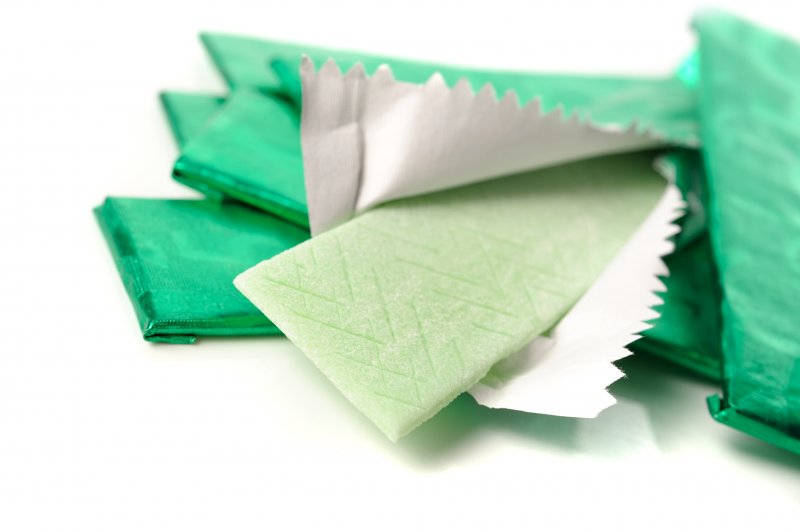Breath Mints vs. Chewing Gum: Which is Better for Teeth?
February 10, 2023

Imagine you need to freshen your breath after a meal. However, you don’t have access to a toothbrush or mouthwash. You might think to have a breath mint or some chewing gum in that situation. Which of the two options, though, is better for your teeth? It’s an important question, as a fresher mouth won’t mean much if it harms your pearly whites. To learn the answer, let your local Vienna dentist explain things. Here, then, is a summary of why sugar-free gum is more helpful to your smile (and breath) than a mere mint.
Breath Mints – A Source of Sneaky Sugar
True enough, a breath mint can do as advertised and fix your bad breath. It may even be pretty tasty to you. Even so, don’t expect this product to help your smile. Many mints, in fact, are as sugary as store-bought candies.
If you keep up with oral health facts, you already know sugar is terrible for your chompers. The carb erodes your enamel by attracting acid-producing bacteria. As such, a mint will likely put you at risk of tooth decay and cavities. You’re thus better off skipping it, no matter how wafer-thin it is.
(Sugar-Free) Chewing Gum – A Boost for Your Smile
In contrast to breath mints, sugar-free chewing gum can freshen your mouth and help your teeth. The latter feature, especially, stems from the two gum effects listed below:
Increased Saliva Flow
Studies show that chewing sugar-free gum stimulates your saliva. That’s good, as the mouth liquid rinses out and neutralizes plaque-causing acids. Plus, it replaces the minerals in your enamel, strengthening your top tooth layer.
To get this tooth-healthy outcome, try to chew gum for at least 20 minutes after a meal. Doing so for that long ensures the saliva has a chance to build up.
Less Bacterial Sticking
Many brands of non-sugary gum contain xylitol – a natural sweetener found in various fruits and veggies. Unlike sugar, however, this material actually works to keep teeth healthy.
You see, xylitol prevents plaque bacteria from sticking to your enamel. The result is that it reduces your risk of tooth decay and even helps reverse it.
Gum Won’t Replace Oral Care
Even if you’re tempted, don’t use gum as a substitute for proper oral hygiene. The substance still doesn’t work as well as standard dental care. Consequently, you should remember to keep doing the following:
- Brush twice daily with fluoridated toothpaste.
- Floss once daily with traditional floss or a flossing tool.
- Rinse once daily with fluoridated mouthwash.
Ultimately, chewing gum wins as the healthier mouth freshener. That being the case, carry some with you for when you next need to freshen up.
About the Practice
Pace Dental is based in Vienna, VA. Led by Dr. Ahmed Saad, our practice gives patients highly-personalized dentistry. To that end, we offer custom-tailored preventive, cosmetic, and restorative procedures, as well as excellent emergency dental care. Our office also prides itself on being a certified provider of Invisalign and SureSmile aligners! If you’d like to learn more or to book a visit, reach us on our website or by phone at (703)-938-6800.
No Comments
No comments yet.
RSS feed for comments on this post.
Sorry, the comment form is closed at this time.
